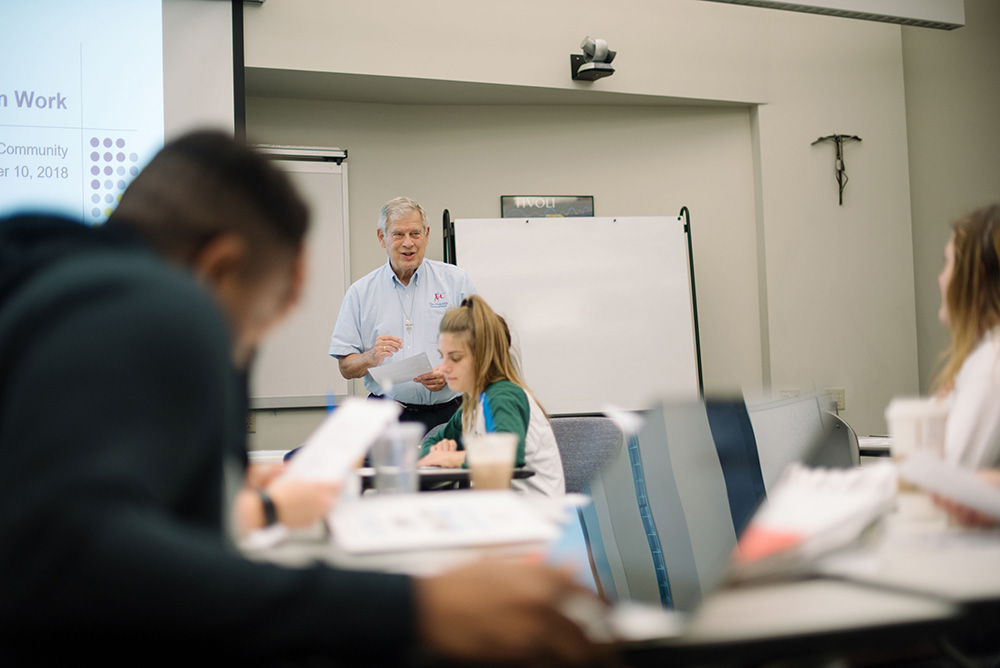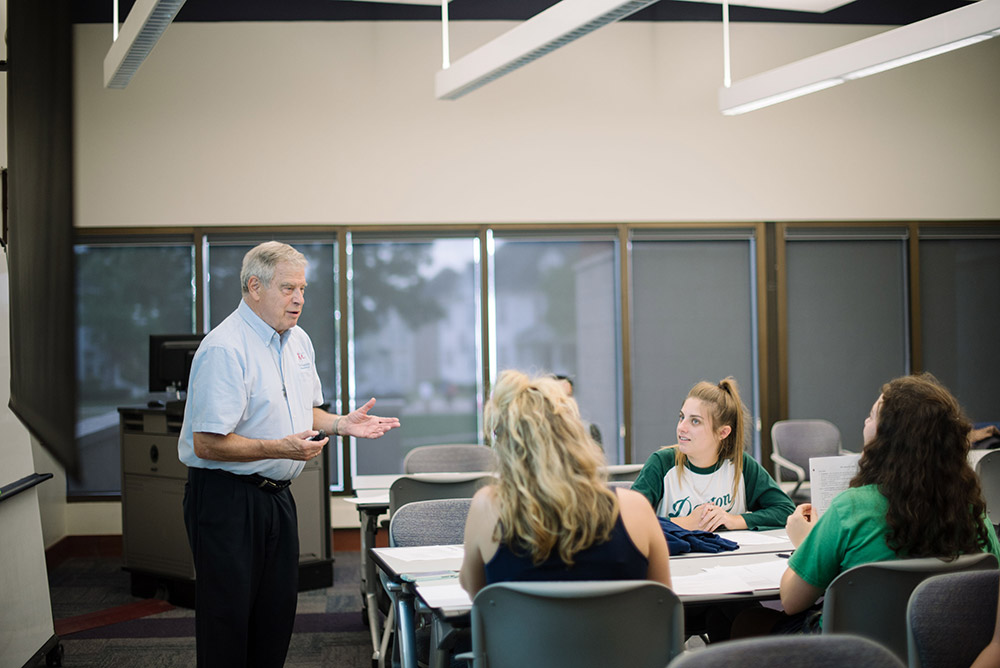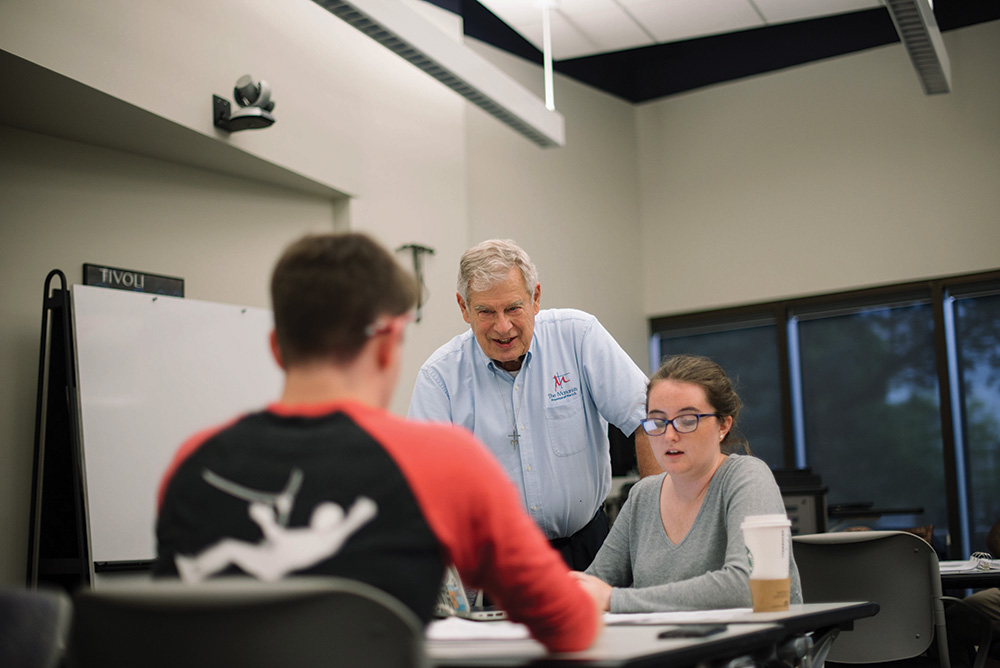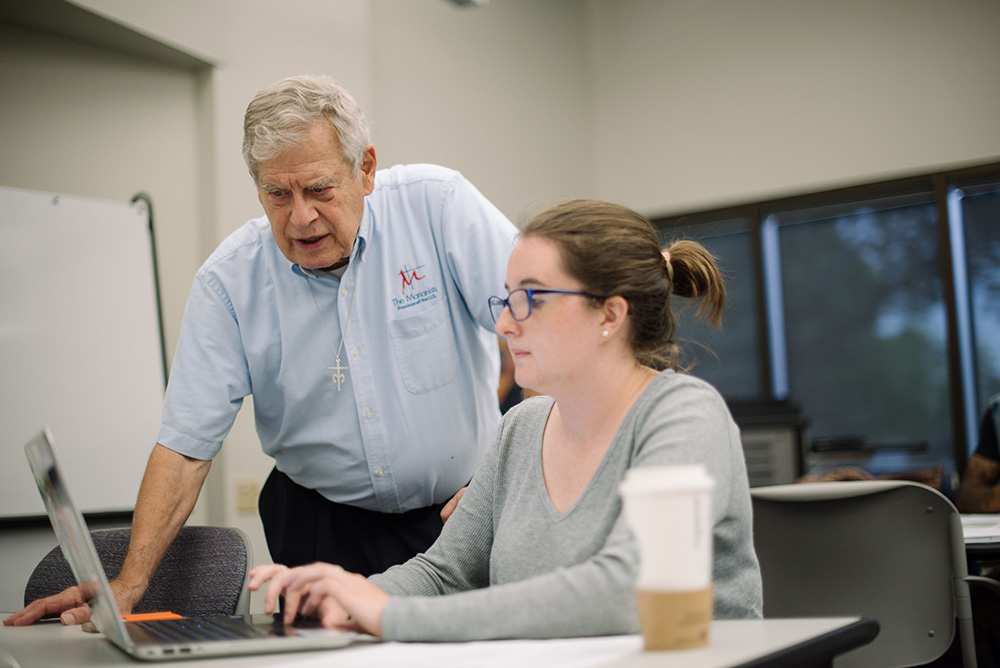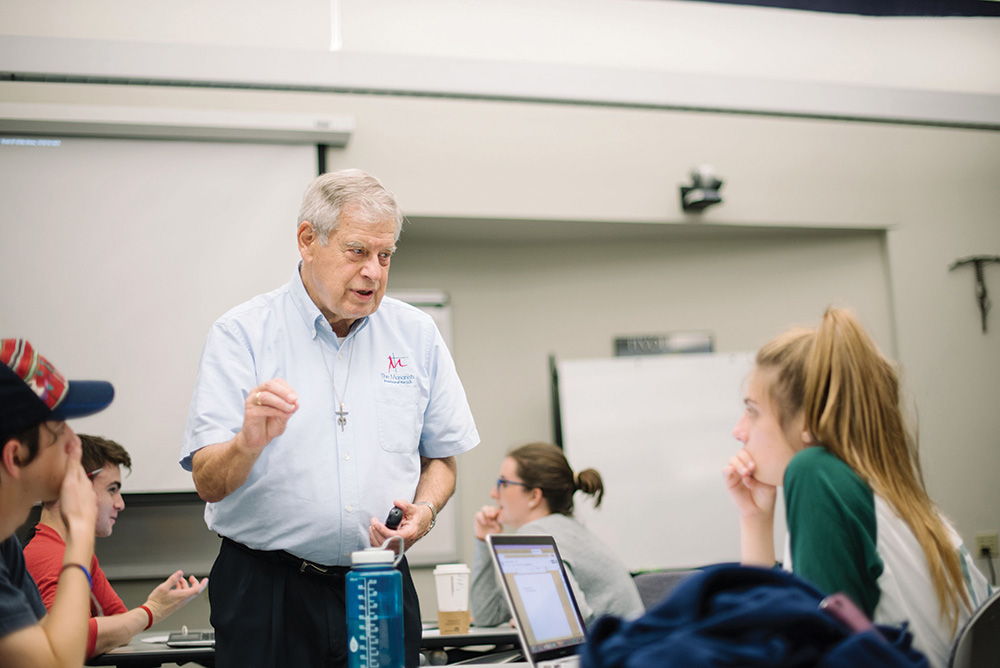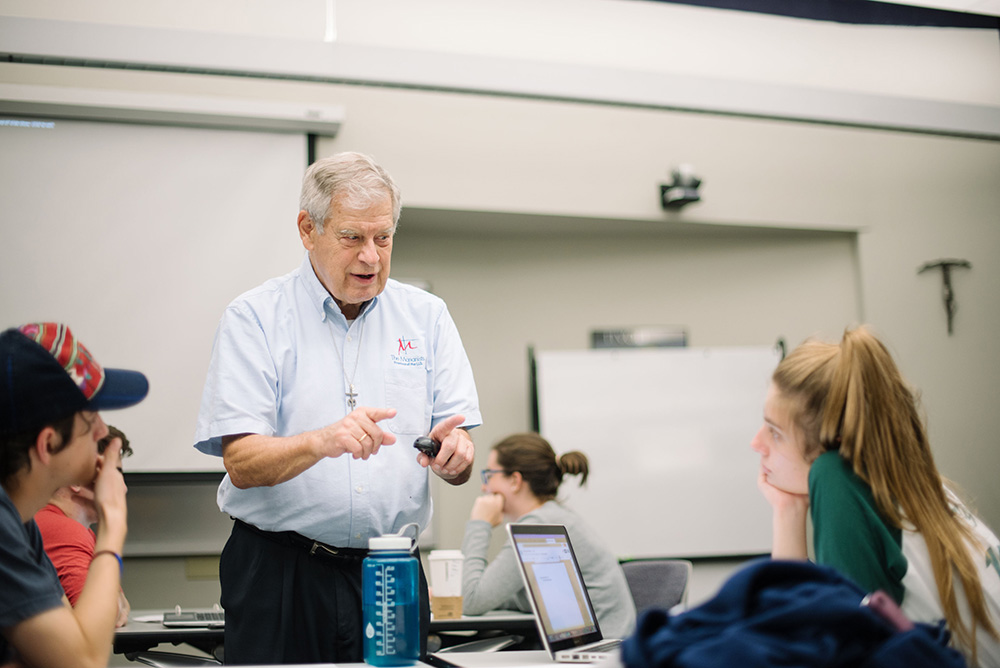Servant-leader, in word and deed
As Brother Ray Fitz, S.M., prepares to step down this summer as the Father Ferree Professor of Social Justice, I chatted with him about the University of Dayton’s role as an anchor institution in our community — and why our civic engagement matters.
Humble and selfless to a fault, Brother Ray models what it means to be a servant-leader. He has taught me so many valuable lessons during the early years of my presidency, but none may be more important than our obligation to connect our students and faculty to the community’s most pressing needs, whether it’s economic development or urban education reform.
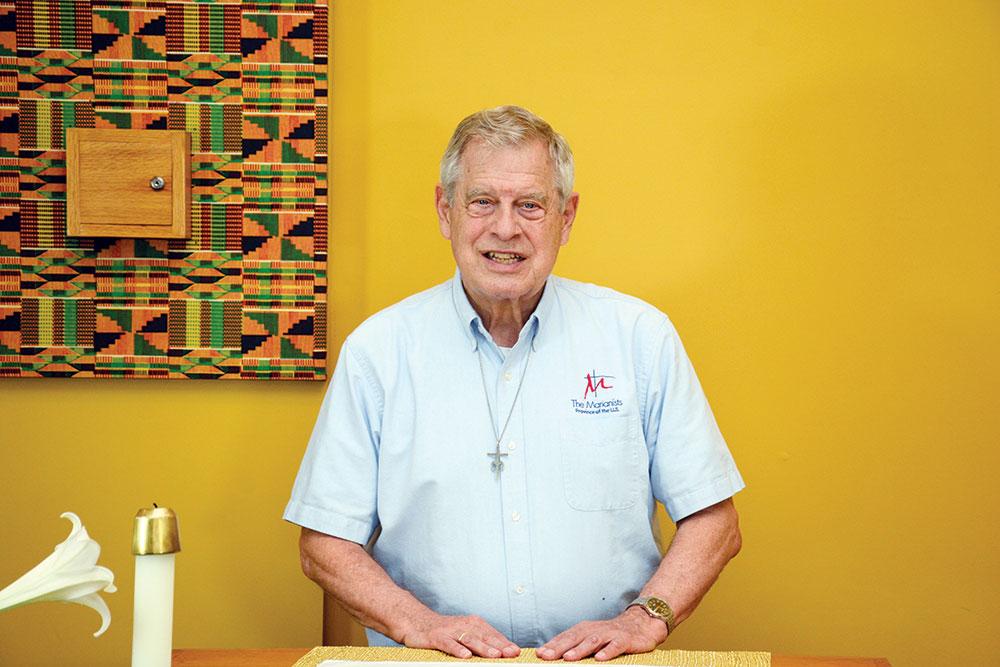
“We have a responsibility to the community. We can’t be an ivory tower,” he told me.
That’s a message he’s been quietly preaching for 50 years on campus as a beloved teacher, administrator, University president, social justice advocate and community leader. While he may be stepping down as Ferree Professor after 17 years, he will not, thankfully, step away from his life’s work of empowering people to use their gifts to serve others, particularly in the city’s urban core.
“I think you have to wake up with a passion, and we have to instill that passion in our students,” he said.
I’m so grateful that Brother Ray will continue to convene gatherings of community leaders around issues of social justice, and that he will continue to teach students in his Leadership in Building Communities seminar ways to help neighborhoods inventory their assets and develop a collective vision for revitalization.
During his 23-year presidency, Brother Ray coined the phrase “partnership university” and began using three simple words to describe UD’s mission — Learn. Lead. Serve. He got down in the trenches, too (and still does). In the 1990s, he chaired a countywide Child Protection Task Force after five children in Dayton’s child welfare system died. He also helped shepherd two local human services levy campaigns to victory, started neighborhood school centers, and is always looking at ways to support the homeless and the hungry, especially children.
As we wrapped up an hour-long chat, he observed, “We’re not going to be able to build communities that are just and peaceful if people aren’t willing to serve.”
As I thought about those words, I realized they not only define the man but also the university we strive to be.
Long before the phrase became popular in higher education, Brother Ray instinctively knew why UD must be a strong and eager “anchor institution,” particularly after racially tense times and the divestment from the city of major manufacturers and Fortune 500 firms.
“When we looked at problems in the community 30 years ago, we looked to see how UD could fit into the agenda,” he remembered. Today, he accurately observed, “The University is helping to form the community’s agenda and provide leadership.”
That’s why Brother Ray and I are heartened to see socially conscious faculty and students choose (and stay at) UD because they want to be part of a University engaged with its community. Because they see community-engaged learning and scholarship as exceptionally rich experiences that distinguish them and best prepare them to be leaders. Because they see that this engagement makes them better doctors, better engineers, better business owners, better citizens, better people.
On behalf of a grateful University and Dayton community, I thank Brother Ray from my heart. He has made a tremendous impact (for which he always strived) and built an extraordinary legacy (which he is quick to downplay with his characteristic humility).
Indeed, Brother Ray, by example, has modeled civic engagement for our students, faculty, staff, researchers and alumni.
He is a servant-leader in word and deed.
